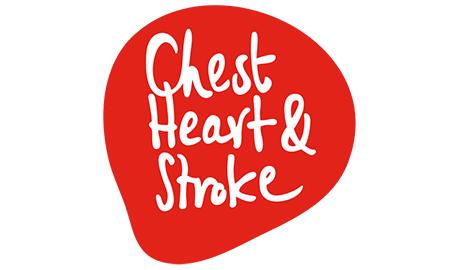Obesity & Heart Disease
Heart Health / Healthy WeightBeing overweight or obese increases your risk of having high blood pressure, heart disease and type 2 diabetes, which in turn, increase your risk of stroke. Healthy eating and exercise are the best ways to maintain a healthy weight.
With adults and children now spending more time than ever sitting at desks and on sofas – and consuming too many high-calorie foods – we all need to move more to burn off the excess calories.
One quarter of under-ten-year-olds are overweight or obese in Northern Ireland and our young people are amongst the most inactive in the UK.
Obesity is generally caused by consuming more calories, often contained in high-fat and sugar foods, than you burn off through physical activity. The excess energy is then stored by the body as fat.
There are also underlying health problems that can lead to obesity.Being overweight means your heart has to work to do everyday tasks and this leads to high blood pressure.
On top of this, the more fat you have in your body, the more fat you are likely to have in your bloodstream, which can lead to high cholesterol.
A healthy weight reduces your risk of chest, heart and circulatory diseases because it helps prevent and manage conditions like high cholesterol, high blood pressure, sleep apnoea and type 2 diabetes that put you at greater risk of developing heart disease or having a stroke.
Even if you don't have any of these conditions, it's important to keep to a healthy weight so you don't develop them in future. Simple lifestyle changes such as avoiding sugary or fatty foods, watching your portion sizes and doing some exercise every day can help you to achieve and maintain a healthy weight. And don’t forget that losing too much weight or being underweight is dangerous too – it can lead to an irregular heartbeat and can affect your heart muscle which can cause heart failure.
Tips For Losing Weight
Think of losing weight as a marathon, not a sprint! Making drastic changes may help you to lose weight quickly but it can be difficult to stick to this in the long-term.
The best way to lose weight is at a rate of 1-2lbs each week. You need to make changes you can stick to in the long term. Be realistic. Remember you probably put on the extra weight over several months or even years, so don’t expect to lose it overnight.
- Start by looking at what you eat – keep a food diary and be honest.
- Plan your meals in advance and keep to a meal routine, which will help avoid unplanned meals and snacks.
- Watch your portion size.
- Eat slowly to allow your stomach time to realise it is full. It takes 20 mins for your stomach to register food.
- Snack on healthy foods like fruit and veg.
- Look at the labels. Check for hidden fat or sugar in the food you buy.
- Know when you are hungry. If you feel hungry, you might just be thirsty so drink some water, or distract yourself. You’ll feel hungrier while watching TV than if you’re busy.



























































